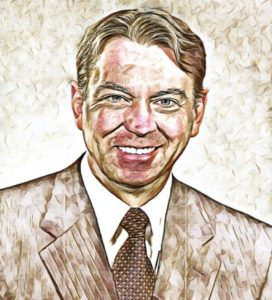A Message From the President

By Charles Henry
President, CLIR
Authoritarian oppression is not “politics,” and we should not refer to it as such. Politics can describe an allocation of values, negotiations and methods of resolving differences, and a general sense of cooperation in a society that contains a range of ideas and expectations that need to be expressed and managed within multi-narrative communities to achieve functional governance.
Proponents of authoritarian oppression, by contrast, often use and exploit politics and political parties to establish and strengthen a regime that is essentially anti-political, in the sense that it works aggressively to nullify individual and organizational perspectives. It silences difference, fosters exclusion, and insists upon an artificial ‘normal’ of seeing and knowing.
This reductive blunting of diversity and creative expression strengthens a centralized, even dictatorial, hold on the means and mechanisms of governance. It insists on subservience, using varying degrees of force. To equate this assaultive erasure of identity, free thinking, and choice with “politics” (or with similarly expedient “culture wars” or even “far right conservatism”) is to take a step toward normalizing a bigoted and potentially lethal fanaticism.
CLIR’s mission and vision are guided by the Universal Declaration of Human Rights, which states: “that recognition of the inherent dignity and of the equal and inalienable rights of all members of the human family is the foundation of freedom, justice and peace in the world.” Of particular focus for us are Article 19, the right to freedom of opinion and expression; Article 26, the right to an education; and Article 27, the right freely to participate in the cultural life of the community, to enjoy the arts and to share in scientific advancement and its benefits.
CLIR provides agency for these rights through programs that reveal previously hidden collections and inaccessible knowledge in support of education and research, with an emphasis on forms of expression of underrepresented and marginalized voices. These resources are often exemplary of a community heritage that has been suppressed, neglected, or simply overlooked. Our mission is to make them visible, and integral to a more encompassing historical narrative. In this respect, much of CLIR’s work supports storytelling, which is core to our humanity.
The world is rife with suppression. We are not concerned with the theology, political manipulation, dogma, myth, or personal animus that can instigate these indignities, but rather with ameliorating the damage and violation of universal human rights.
Now we have been approached to study two examples of authoritarian oppression, to identify community networks and technical protocols that CLIR could muster in response.
The first is Afghanistan, where women are prohibited by the Taliban government from attending school past the sixth (essentially banning them from high school and university). One question pertains to the feasibility of providing an online repository of books and other resources that had been banned but could be delivered electronically to the segregated women as a surrogate for the formal education they are denied. We determined that several organizations have, in fact, undertaken such an approach.
The second conversation involves questions about the personal, educational, and cultural assault that is continuing in the state of Florida.
This past year, legislation has been enacted repeatedly against various freedoms in the Sunshine State. These include the new illegality of teaching gender identity (HB1552); the gutting of programs guided by diversity, equity and inclusion (SB266); the prohibition of the use of personal pronouns that are different from one’s birth-certificate gender designation; the banning of books and other reading materials found offensive by even a single community member; the potentially life-threatening shutting down of health services for women; prohibitions on the public expression of progressive or liberal ideas; draconian limitations against immigrants; and related intrusive and coercive diktats.
The resulting dangerous, violence prone environment has prompted several travel warnings explicitly tied to the threat to human rights in Florida: one by the LGBTQ+ community, filed by Equality Florida and The Human Rights Campaign; an NAACP travel warning
and a travel-and-relocation warning from the League of United Latin American Citizens (LULAC).
In our review of these appalling circumstances in Florida, a pattern emerges. The pervasive, insistent use of fear; the targeting of immigrants and foreign nationals; the relentless references to the threat of difference and diversity; the use of spectacle and publicized stunts (think of the ongoing kidnapping of immigrants who are then then shipped to liberal cities); screeds with religious inferences; the denial of voting rights based on the color of skin; and above all, the assertion of a single, bleached, and uncritical narrative of American history: All of these were in the playbook of the second rising of the Ku Klux Klan in early-20th-century America.
The first iteration of the Klan, after the Civil War, was localized and comparatively small, its violent and secretive participants roiling the South. The second coming was far more regionally dispersed, with strong footholds in the North and membership in the millions, including U.S. senators and members of Congress. At a public parade on Pennsylvania Avenue, in Washington, in 1926 ( as well as in 1925 and 1928), thousands cheered the white-robed marchers, with the Capitol as background. Parades and similar spectacles and amusement were essential. The Klan sponsored circuses, picnics, and widely attended minstrel shows, too. The contemporary Floridian mantra of “anti-woke” is eerily reminiscent of the Klan’s rhetoric of “naturalization.”
We find it astonishing and profoundly disturbing that conditions in a modern U.S. state can so quickly be made to resemble those in the oppressive past regimes ruled by racist ideologies. In response to this methodical diminution of ourselves, our voices of pain must be heard. Because our interests are anchored in the freedom of open, candid storytelling, in subsequent podcasts we will speak with those directly affected by this domestic despotism, look more closely at historical antecedents, and begin to discuss responses to these transgressions against our humanity.
Charles Henry is the president of the Council on Library and Information Resources (CLIR).


